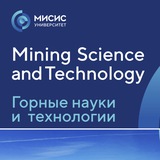Dry technologies for processing and enrichment of mineral raw materials - pros and cons!
The use of dry methods of processing and beneficiation of mineral raw materials is one of the promising areas, as this approach to concentrate production is less energy-consuming, less labor-intensive, and economically beneficial. However, this method of enrichment is not always technologically effective. Experimental studies on the experimental studies on preliminary dry separation of Arkachan deposit ores to determine the quality of beneficiation of the separation products are presented in an article in the journal Mining Science and Technology. The results of the study showed, dry beneficiation as applied to the ores of Arkachan deposit is technologically inefficient. Additional laboratory studies of pneumatic separation processes at high degree of ore materials grinding are required. The authors of the study are confident that their methodological approach will be useful for colleagues in substantiating technologies for processing and beneficiation of mineral raw materials.
For more information, see the article:
📌 Matveev А.I., Lebedev I.F., Vinokurov V.R., Lvov E.S. Comparative processing studies of the Arkachan deposit gold-bearing ores using dry separation and classical wet gravity separation methods. Mining Science and Technology (Russia). 2024;9(2):158-169. https://doi.org/10.17073/2500-0632-2023-10-168
Subscribe to the journal's Telegram channel:
👉t.iss.one/MinSciTech👈
#inenglish #MST #beneficiation #ore #gold #grinding #crushing #pneumaticseparation #gravity #concentrator #classification #mill #crusher #recovery #concentrate #tails #size #fractions #separation #content #release #surface #pneumaticseparator #magnetic #dry #goldbearing #cycle #deposit #sample #methodology #test #technology #efficiency #property #particle #material #economy #recycling
The use of dry methods of processing and beneficiation of mineral raw materials is one of the promising areas, as this approach to concentrate production is less energy-consuming, less labor-intensive, and economically beneficial. However, this method of enrichment is not always technologically effective. Experimental studies on the experimental studies on preliminary dry separation of Arkachan deposit ores to determine the quality of beneficiation of the separation products are presented in an article in the journal Mining Science and Technology. The results of the study showed, dry beneficiation as applied to the ores of Arkachan deposit is technologically inefficient. Additional laboratory studies of pneumatic separation processes at high degree of ore materials grinding are required. The authors of the study are confident that their methodological approach will be useful for colleagues in substantiating technologies for processing and beneficiation of mineral raw materials.
For more information, see the article:
📌 Matveev А.I., Lebedev I.F., Vinokurov V.R., Lvov E.S. Comparative processing studies of the Arkachan deposit gold-bearing ores using dry separation and classical wet gravity separation methods. Mining Science and Technology (Russia). 2024;9(2):158-169. https://doi.org/10.17073/2500-0632-2023-10-168
Subscribe to the journal's Telegram channel:
👉t.iss.one/MinSciTech👈
#inenglish #MST #beneficiation #ore #gold #grinding #crushing #pneumaticseparation #gravity #concentrator #classification #mill #crusher #recovery #concentrate #tails #size #fractions #separation #content #release #surface #pneumaticseparator #magnetic #dry #goldbearing #cycle #deposit #sample #methodology #test #technology #efficiency #property #particle #material #economy #recycling
👍4⚡1❤1🔥1👏1
🔍 Dry vs wet: unexpected results for Arkachan gold ore
Comparison Methods:
✔️ Dry Processing: Crushing (DKD-300) + Grinding (TsMVU-800) + Pneumatic Separation (POS-2000)
✔️ Wet Processing: Gravity Separation with GRG Test (ITOMAK-0.1)
📊 Key Data:
Gold Distribution:
✔️ 27.35% in -0.2+0.1 mm class;
✔️ 11.75% in -0.1+0.071 mm class;
✔️ 23.46% in -0.071 mm class;
→ Total 62.56% in particles <0.2 mm
Method Efficiency:
✔️ pneumatic Separation: 35.25% recovery at 1.8 t/h;
✔️ GRG Test: 73.91% recovery with grinding to 80% passing 0.071 mm.
GRG Test Results by Stage:
✔️ Stage 1 (-1 mm): 40.20% recovery;
✔️ Stage 2 (-0.315 mm): +14.46%;
✔️ Stage 3 (-0.071 mm): +20.88%.
Conclusions:
1. Dry methods are ineffective for fine-grained gold (<100 µm).
2. Gravity separation requires fine grinding but achieves high recovery.
3. Major losses are due to incomplete liberation of gold in pyrite.
🔗 Full Article:
Matveev А.I., Lebedev I.F., Vinokurov V.R., Lvov E.S. Comparative processing studies of the Arkachan deposit gold-bearing ores using dry separation and classical wet gravity separation methods. Mining Science and Technology (Russia). 2024;9(2):158-169. https://doi.org/10.17073/2500-0632-2023-10-168
🔔 Subscribe: @MinSciTech
💬 What modern methods could improve dry processing for such ores?
#InEnglish #MST #Mining #Gold #Beneficiation #Crusher #Mill #Separator #DryProcessing #ParticleSize #Pyrite #Sample #Ore #Test #Method #Analysis #Stage #Class #Gravity #FineGrained #Particles #Concentrate #Grinding #Efficiency #Crushing #Recovery #Flowchart #Cycle #Fraction #Balance #Parameter #Mode #Degree #Impact #Abrasion #Subsample #Sludge #Pulp #SizeFraction #Feed #Tailings #Losses #Product #Intergrowths
P.S. For ores with fine-grained gold, classical gravity remains optimal. Are there alternatives?
Comparison Methods:
✔️ Dry Processing: Crushing (DKD-300) + Grinding (TsMVU-800) + Pneumatic Separation (POS-2000)
✔️ Wet Processing: Gravity Separation with GRG Test (ITOMAK-0.1)
📊 Key Data:
Gold Distribution:
✔️ 27.35% in -0.2+0.1 mm class;
✔️ 11.75% in -0.1+0.071 mm class;
✔️ 23.46% in -0.071 mm class;
→ Total 62.56% in particles <0.2 mm
Method Efficiency:
✔️ pneumatic Separation: 35.25% recovery at 1.8 t/h;
✔️ GRG Test: 73.91% recovery with grinding to 80% passing 0.071 mm.
GRG Test Results by Stage:
✔️ Stage 1 (-1 mm): 40.20% recovery;
✔️ Stage 2 (-0.315 mm): +14.46%;
✔️ Stage 3 (-0.071 mm): +20.88%.
Conclusions:
1. Dry methods are ineffective for fine-grained gold (<100 µm).
2. Gravity separation requires fine grinding but achieves high recovery.
3. Major losses are due to incomplete liberation of gold in pyrite.
🔗 Full Article:
Matveev А.I., Lebedev I.F., Vinokurov V.R., Lvov E.S. Comparative processing studies of the Arkachan deposit gold-bearing ores using dry separation and classical wet gravity separation methods. Mining Science and Technology (Russia). 2024;9(2):158-169. https://doi.org/10.17073/2500-0632-2023-10-168
🔔 Subscribe: @MinSciTech
💬 What modern methods could improve dry processing for such ores?
#InEnglish #MST #Mining #Gold #Beneficiation #Crusher #Mill #Separator #DryProcessing #ParticleSize #Pyrite #Sample #Ore #Test #Method #Analysis #Stage #Class #Gravity #FineGrained #Particles #Concentrate #Grinding #Efficiency #Crushing #Recovery #Flowchart #Cycle #Fraction #Balance #Parameter #Mode #Degree #Impact #Abrasion #Subsample #Sludge #Pulp #SizeFraction #Feed #Tailings #Losses #Product #Intergrowths
P.S. For ores with fine-grained gold, classical gravity remains optimal. Are there alternatives?
👍4❤2🔥1🙏1💯1
